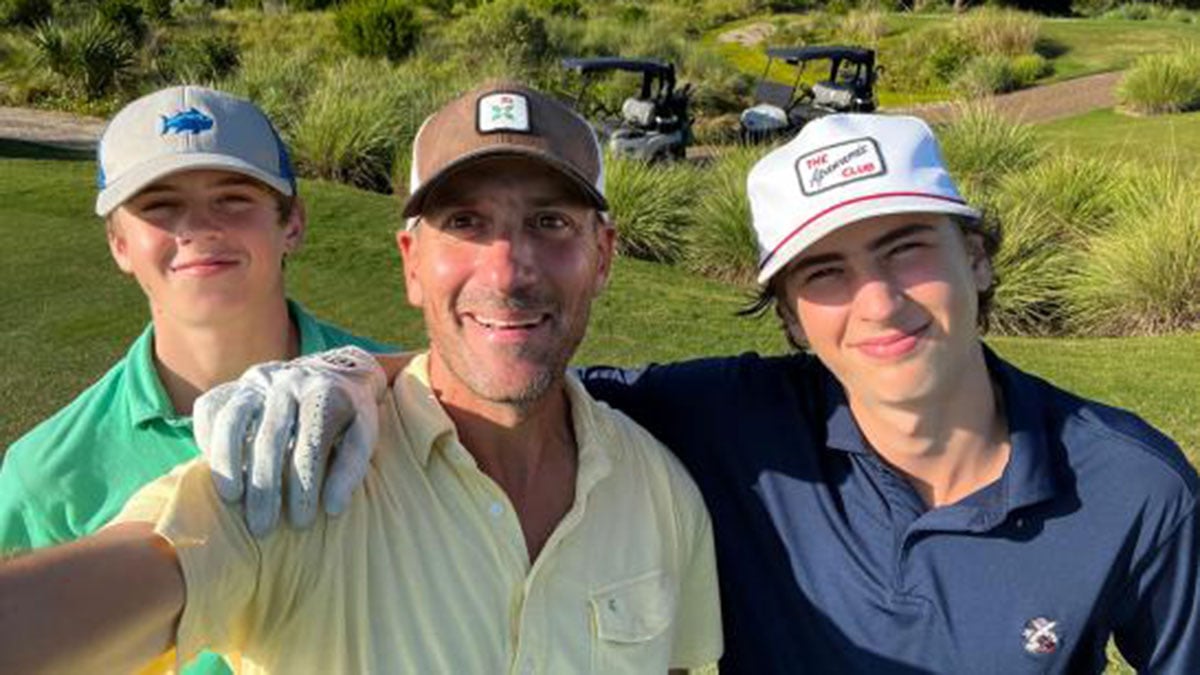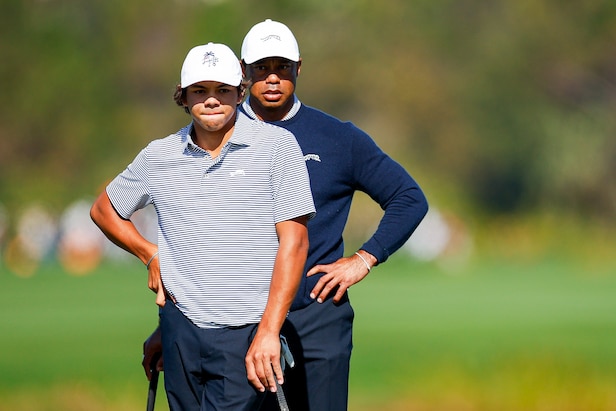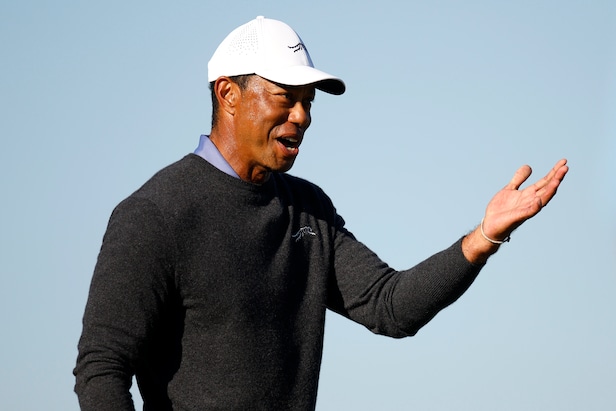Raising A Junior Golfer? This Is The Stuff I Did Wrong – Australian Golf Digest

- by Admin
- April 24, 2024

The author only meant well with his junior golfer, but his best advice comes from his mistakes
I have written about my oldest son’s progress as an elite golfer. Perhaps you think this qualifies me to provide advice to other golf parents. Maybe so, but not necessarily the type you would expect. Much as my experience working in the golf industry has afforded me insight into how the game should be played and taught, the nuggets of wisdom I have relayed to my son are probably outnumbered by the mishaps I’ve made along the way. My guidance is more like a yardage book that maps out all the hazards. The least I could do is spare you the same trouble.
LESSON #1: Your kid is not you
The first problem with being a golf parent is that most of us are also avid golfers. As not a particularly great player, I have made the recurring mistake of projecting my golf experiences on to my son without factoring in the widening gap in our abilities. Close the face. Aim further out. Just lag it close. These are all things I’ve thought and even said while watching my kid play, which disregards more than just our different skill sets, but that he really should just figure this stuff out himself. Never mind if my advice was right or wrong. The mistake was thinking it mattered.
LESSON #2: Beware hypocrisy
The second problem with playing golf with my kid all these years is he’s been playing golf with me. It’s possible he recalls the day I got up-and-down from everywhere on the front nine, but he definitely remembers the time I helicoptered a wedge out of frustration into a greenside bunker. It was unreasonable for me to expect model comportment from my kid when, as a grown adult with a bond, I couldn’t always hold it together myself. The compromise then was to accept this was a process. I wanted him to try to manage his emotions better, and I would do the same, but as with golf itself, perfection was a myth.
LESSON #3: There’s a difference between nudging and pushing
If a golfer’s motivation ultimately needs to come from within, that doesn’t mean a kid has to navigate the game alone. Broadly, I believe a parent’s role is to help their child make decisions their future selves will appreciate. For young golfers, that could be outlining a path to success by connecting the player with a coach or suggesting a practice routine – all those elements that kids might not have the vision to see on their own, but you know to be helpful. Personally, if I had stopped there, that would have been best. My problem, admittedly, was when my “outlining” and “suggesting” occasionally felt more like “pressuring”. I can think of a handful of times when my son dragged himself to practice specifically because he knew that’s what I expected. Without even knowing it, I had turned chipping and putting into as much of a chore as emptying the dishwasher. A smarter approach comes from my wife, who is not a golfer but a veteran educator. Rather than tell a kid what they should do, she asks them the sort of questions that help them arrive at their own conclusions. What’s something you’d like to be better at? What do you think will help you get there? Very often the seed of the same solution is planted, but without the gnawing sense an adult put it there.
LESSON #4: Less is way more
As a Golf Digest editor, and the author of a book in the sports psychology realm, I am burdened with the belief my insights into golf and competing are worth sharing. Maybe they are (please keep paying attention!), but the teenage brain can only handle so much input from a parent, especially one hitting from 30 metres behind in the fairway. There was a point when I threw everything I could at my kid about course strategy and a winning mindset, before realising how much of it was just white noise. In the years since, learning to pick my spots has improved my success rate, as well as hopefully our relationship. At a tournament a few years ago he imploded over the last two holes, and when he plopped himself in the passenger seat, I had to fight the instinct to unpack what happened and what he could learn. We made the hour drive home mostly in silence, which was hard for me, but precisely what he needed.
LESSON #5: The payoff isn’t what you think
A golf dad like me has vacillated between two extremes when trying to motivate my kids, and both have pitfalls. I started by trumpeting that golf is fun, which it can be provided you don’t end up in a puddle of tears on the seventh green. Then when my son showed enough promise came the suggestion that golf “might lead somewhere”. Both objectives miss the point.
That golf can be fun is a given. I wouldn’t subject myself or anyone else to it if it didn’t provide a level of joy. But golf can also be miserable, and maddening – the type of fun that results in clubs snapped in two.
Is it a path to college or a career? For a select few, sure, but the moment golf becomes about a tangible return, the edges around the game can harden. You don’t practise because you want to, but because you need to. You measure progress on a scale you don’t get to define. When my son decided he wanted to play golf in college, even I paused to ask him if he was sure it was worth it. He insisted it was, but the atmosphere around his golf grew heavier.
So what is the payoff of golf? The phrase we settled on is that golf is always rewarding. It’s rewarding when it’s fun, and rewarding when it’s hard, and even when you collapse over the last two holes of a tournament and drive home in silence. The pursuit is everything.
For all my bungling, it turns out there was one important way I could use myself as a model. When my son decided to channel his energy into golf, he could be assured there was a payoff that would be there long after college acceptance letters. It could be there when he’s middle-aged and with a diminished swing speed, yet still counting the minutes until his next tee-time.
In his high school yearbook, my son wrote to me, “Dad, thank you for passing down your love of sport and not passing down your golf swing,” which might sound like an insult if it wasn’t exactly what I wanted as well. The kid deserved to play the game better than me. But if he loves the game nearly as much as I do, I must have done something right.
The Latest News
-
December 22, 2024The remarkable Lleyton Hewitt feat Cruz Hewitt can emulate after being handed 2025 Australian Open wildcard
-
December 22, 2024Forgotten man removes himself from Test talk
-
December 22, 2024Tiger Woods’ son Charlie makes a hole-in-one in the final round of the PNC Championship – Australian Golf Digest
-
December 22, 2024Tennis’ love match: Meet ‘Aussie’ Matteo Arnaldi and his Melburnian girlfriend
-
December 22, 2024GEORGIE PARKER: McSweeney was McStiff to get axed





